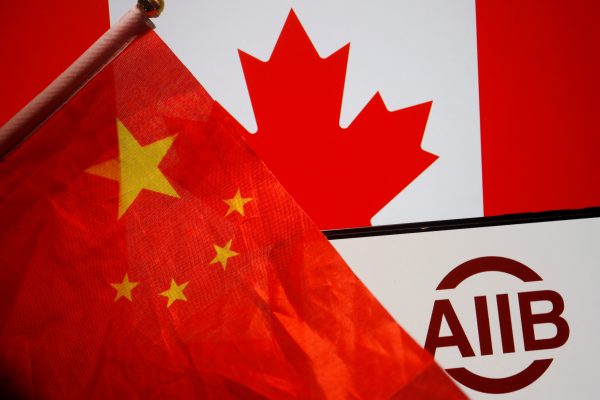Created in 1944, the IMF and World Bank established a model for effective multilateralism — balancing on the one hand, a shared voice for all supported by high governance standards and a commitment to consensus, and on the other, acknowledging the realities of unequal economic and political standing in relative voting shares. But this model requires periodic re-calibration to remain aligned with changing realities.
On 14 June 2023, the Canadian Deputy Prime Minister and Finance Minister announced a halt to all government-led activities at the Asian Infrastructure Investment Bank (AIIB). They were conducting an urgent review of allegations by the bank’s resigning external affairs director, Canadian national Bob Pickard, of Chinese Communist Party (CCP) interference in the internal governance of the Beijing-based and Chinese-led multilateral development bank (MDB).
Political sensitivities around membership of the AIIB are not new. But over the last seven years, the bank has established its credentials as a responsible and accepted member of the MDB community by actively partnering with established MDBs, notably the World Bank Group, the Asian Development Bank and the European Bank for Reconstruction and Development.
Mr Pickard’s allegations have found fertile ground in Canada, where a domestic context of heightened suspicion of the People’s Republic of China has been fuelled by developments such as the ‘two Michaels’ saga. Membership of the AIIB was a contentious issue in both the 2019 and 2021 federal elections. Yet the findings of the urgent Canadian government review have yet to be made public.
The AIIB welcomed the Canadian review and initiated its own internal inquiry. Led by its General Counsel Alberto Ninio — a Brazilian national with extensive World Bank and corporate experience — the inquiry had access to internal documents, communications and extensive interviews of its nationally diverse staff. The investigation highlighted shortcomings in the human resources management of both Mr Pickard’s performance and multiple staff conflicts within his team. While acknowledging cultural challenges, it rejected the label of a ‘toxic’ environment. It found no evidence of inappropriate interference by the CCP or any other national political body, highlighting the bank’s robust governance and internal processes.
These findings may not persuade external critics inclined to assume a covert CCP presence and agenda. The failure of non-Chinese staff, including all five vice-presidents, to attest to inappropriate internal CCP influence may be rationalised as either complicity or naivety. Some will make much of the potential weaknesses of a non-resident Board. There will be some determined to find conspiracy.
The AIIB undoubtedly faces a number of challenges — including how to build the desired culture in a young institution with widely diverse expectations regarding management styles and staff empowerment. Other challenges include how to fully capture the potential benefits of a non-resident board, in terms of efficiency and strategic focus and how to avoid under resourcing key functions, including human resources, while avoiding the high administrative costs of other MDBs.
But while there may be CCP members among the Chinese AIIB staff, China is unlikely to risk compromising the key benefit it gains from the AIIB, which is demonstrating that it can responsibly lead a respected MDB with high operational standards.
Effective multilateralism requires a judicious balance. It involves ensuring a shared voice for all supported by high governance standards and a commitment to consensus while recognising the realities of unequal economic and political weight. The latter is reflected in the effective veto — at the AIIB, China’s 26 per cent of the vote — given to key members over specific critical issues for the institution. Chinese efforts to surreptitiously corrupt internal decision-making would only disrupt this balance at the AIIB and erode its leadership legitimacy.
The broader impact of geopolitical tensions on multilateralism is increasingly evident. The US Congress is reportedly concerned about China’s growing influence at the Inter-American Development Bank. Of far more systemic consequence, challenges in finalising the IMF’s 16th Quota review reflect difficulties in agreeing to raise China’s relative voting power consistent with its economic weight. At the World Bank and among other MDBs, the prevailing focus on stretching the lending capacity provided by existing capital bases, while highly desirable, also serves to kick the difficult issue of voting realignment down the road.
While this may provide time and leverage to press China for more constructive engagement on issues such as global debt, it risks missing the point that the International Monetary Fund and MDBs remain the best available option for harnessing China’s growing weight within the established rules-based system. At the same time, the progressive erosion of the principle that decision making power should reflect economic weight will inevitably erode the legitimacy and effectiveness of these institutions, precisely when the challenges they are asked to tackle are becoming increasingly urgent and complex.
Mr Pickard has opined that he sees no advantage in Canada’s continued membership in the AIIB. It is not clear what potential benefits he was dismissing. But it is arguable that the ability to keep open lines of communication with Chinese officials, even if relatively narrowly focused on the AIIB’s operations, offers practical value for middle powers such as Canada and Australia in these increasingly difficult times.
Chris Legg is Chair of the Board of Global Infrastructure Hub and former chief advisor at the Department of the Australian Treasury. He has sat on the Boards of the IMF and World Bank and was Australia’s Chief Negotiator in the establishment of the AIIB. He agreed to provide pro bono independent external advice on the design and conduct of the AIIB’s internal review of Mr Pickard’s allegations, but did not view the material collected nor influence the findings.

